In 2020, all eyes will be on Tokyo as the host city of the next Olympic and Paralympic Games. Focus will not only be on the success of the games but also the initiatives undertaken by the host city, including creating a lasting legacy once the Games are over.
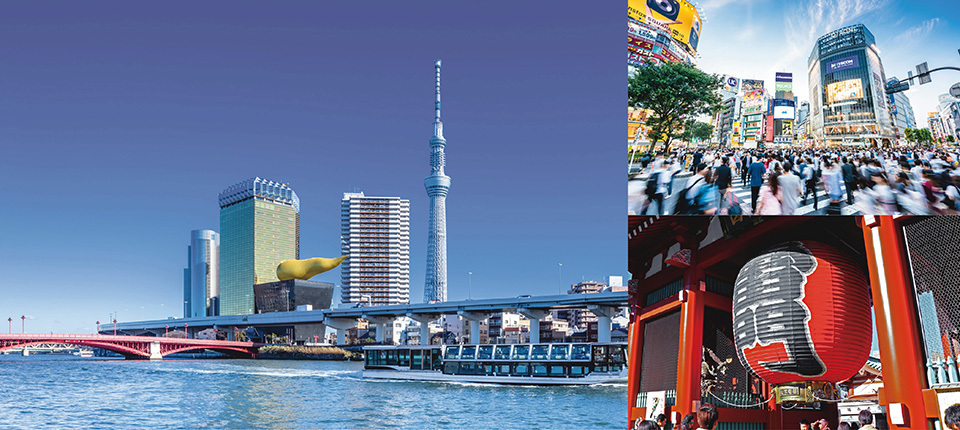
Enjoy the magic of the city of Tokyo along with the Tokyo 2020 Games. (Clockwise from top right) Shibuya Crossing, Kaminari-mon Gate in Asakusa, Sumida River and Tokyo Skytree.
Tokyo is one of Asia’s foremost cities’ with a population of 14 million. While the city offers cutting-edge technologies, new culture and trends such as anime and fashion to the world, its long history and traditions are still very much alive. This unique blend of tradition and modernity, the ultimate allure of Tokyo, attracts attention from around the world this year.
In September 2013, Tokyo was selected for the second time to host the Olympic and Paralympic Games at the International Olympic Committee (IOC) Session in Buenos Aires, marking 56 years since Tokyo last hosted the Games. Since then, Tokyo has been making every effort to build momentum and make preparations for the greatest Games yet.
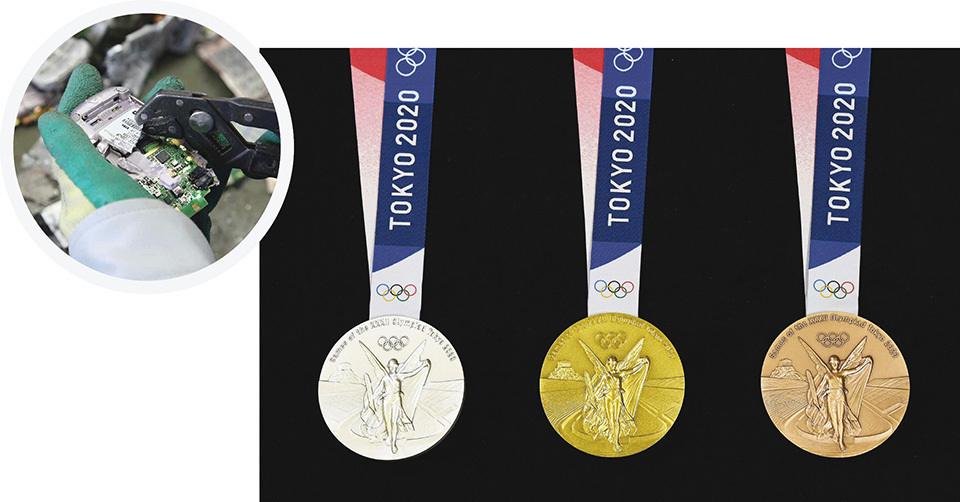
Collecting small home appliances such as used mobile phones. This is the first time at an Olympics and Paralympics when metals have been extracted to create medals.
One of the unique initiatives of the sustainable Olympics and Paralympics is the Tokyo 2020 Medal Project. This initiative is an attempt to recycle small electronic devices such as used mobile phones from homes and offices, extracting the gold, silver, and bronze materials needed to make the medals. Launched in 2017, the project has succeeded in collecting enough materials within the space of two years to produce approximately 5,000 medals (collecting about 32kg of gold, about 3,500kg of silver, and 2,200kg of bronze). This is the first time in the history of the Olympic and Paralympic Games that medals will be made exclusively from recycled materials. Look out for these totally sustainable medals proudly won by athletes at the Tokyo 2020 Games.
The After Medal Project, promoting the collection of small home appliances, was also launched by the Japanese government to encourage many people to get involved in recycling. The various efforts to recycle the Earth’s limited resources will no doubt become a lasting legacy of the Tokyo 2020 Games.
During the Games, the Olympic Village aims to be a low-carbon venue, and once the Games have finished, it is to be designated for residential and commercial use, becoming a model for an environmentally advanced city. In the Olympic Village, a hydrogen station, a hydrogen pipeline, and pure hydrogen fuel cells will be set up, with the plan that the active use of hydrogen will be established in both residential and commercial facilities after the Games end. This kind of advanced hydrogen energy will be incorporated into everyday life with fuel cell buses and vehicles that run on hydrogen ferrying people around. The creation of a new city to realize such a hydrogen-based society is forging ahead. Take note of the urban development brimming with Japan’s technological strength, while enjoying the festival of sports at the Tokyo 2020 Games.
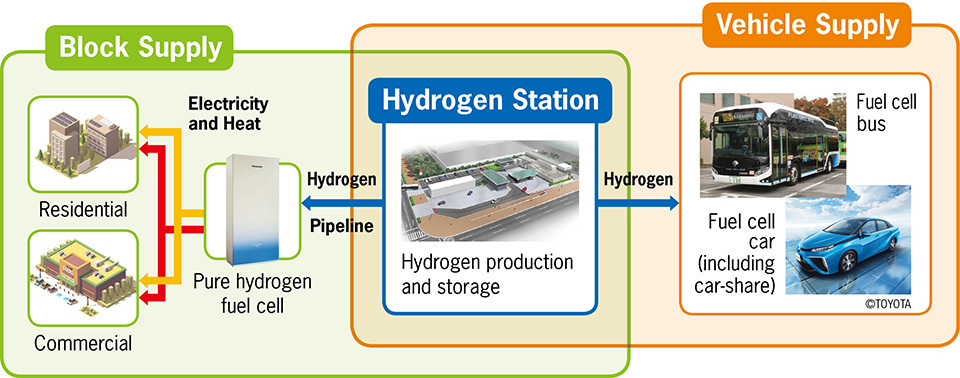
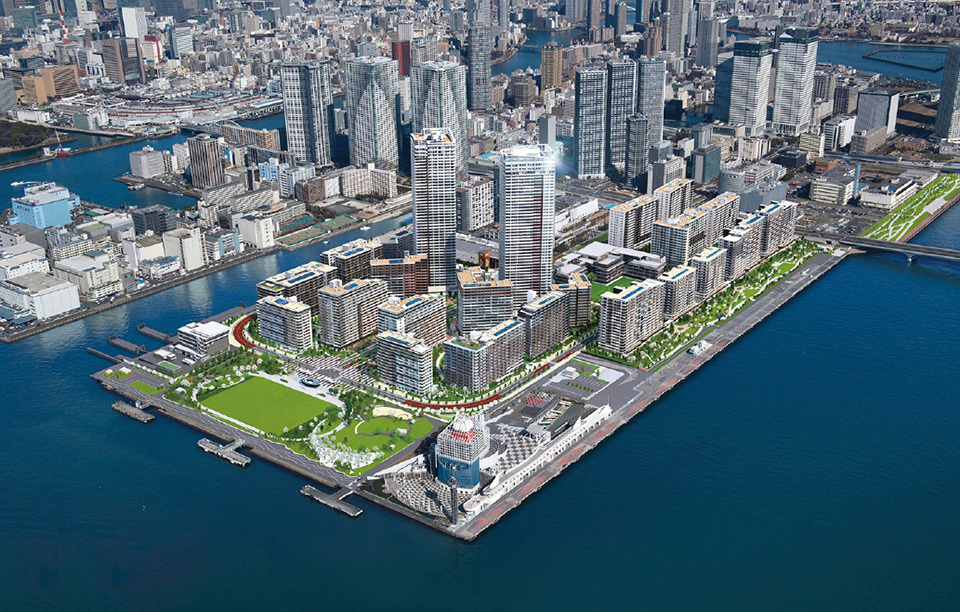
Active use of hydrogen energy for a sustainable Olympics and Paralympics. Above is a vision of the Olympic Village after the Tokyo 2020 Games.
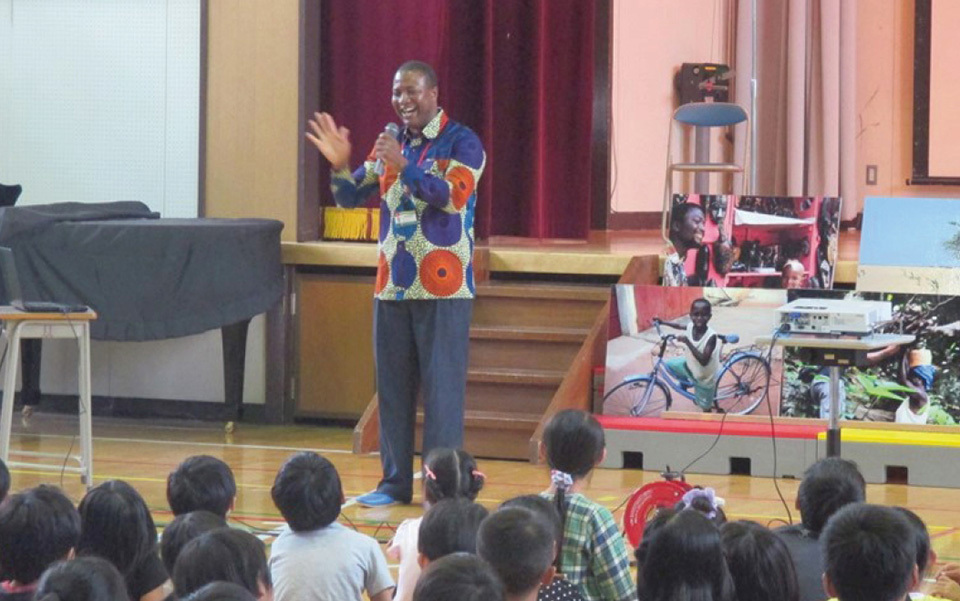
Children learning about the culture of Togo.
TOKYO 2020 to Connect Children with the World
As a part of the educational initiatives surrounding the Olympics and Paralympics, the Global Friendship Project is being implemented in Tokyo to teach Japanese children about the countries and regions scheduled to participate in the Tokyo 2020 Games, in an effort to lead to real international exchange. All public schools in Tokyo will learn about the language, culture, and history, etc. of five designated countries and regions. By studying those particular countries, interacting with embassies, speaking to international students, and exchanging e-mails with local schools, students will have the opportunity to cultivate a profound sense of internationality. Children, too, are getting ready for the Games!





























